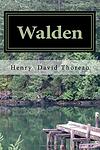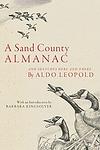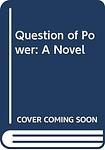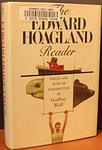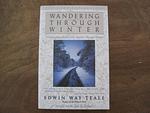The Greatest "Natural history" Books of All Time
Click to learn how this list is calculated.
This list represents a comprehensive and trusted collection of the greatest books. Developed through a specialized algorithm, it brings together 284 'best of' book lists to form a definitive guide to the world's most acclaimed books. For those interested in how these books are chosen, additional details can be found on the rankings page.
Genres
Natural history is a genre of books that focuses on the study of living organisms and their environment. It encompasses a wide range of topics, including biology, ecology, geology, and anthropology. Natural history books provide readers with a deeper understanding of the natural world and the complex relationships between different species. They often include detailed descriptions of plants and animals, as well as their behavior and habitats. Natural history books can be both informative and entertaining, and are a valuable resource for anyone interested in the natural world.
Countries
Date Range
Reading Statistics
Click the button below to see how many of these books you've read!
Download
If you're interested in downloading this list as a CSV file for use in a spreadsheet application, you can easily do so by clicking the button below. Please note that to ensure a manageable file size and faster download, the CSV will include details for only the first 500 books.
Download-
1. Walden by Henry David Thoreau
This work is a reflection upon simple living in natural surroundings, inspired by the author's two-year experience of living in a cabin near a woodland pond. Filled with philosophical insights, observations on nature, and declarations of independence from societal expectations, the book is a critique of the complexities of modern civilization and a call to appreciate the beauty and simplicity of the natural world. It explores themes such as self-reliance, solitude, and the individual's relationship with nature.
-
2. My Family And Other Animals by Gerald Durrell
In this humorous and heartwarming memoir, a young boy named Gerald Durrell recounts his unconventional upbringing on the idyllic Greek island of Corfu. Surrounded by a colorful cast of eccentric family members and a menagerie of unique animals, Gerald's adventures and misadventures bring joy and laughter to readers as he navigates the wonders of nature and the challenges of growing up. With vivid descriptions and witty anecdotes, this book is a delightful tribute to the beauty of the natural world and the bonds of family.
-
3. The Snow Leopard by Peter Matthiessen
"The Snow Leopard" is a travelogue that recounts the author's two-month journey in the Himalayas with naturalist George Schaller. The duo trek through the rugged and remote mountains of Nepal on a quest to study the rare blue sheep and possibly spot the elusive snow leopard. The book is as much a spiritual journey as it is a physical one, with the author seeking solace and understanding following the death of his wife. The narrative explores themes of grief, nature, and Buddhism, offering a poignant and introspective look at life and loss.
-
4. Civil Disobedience by Henry David Thoreau
The book is a seminal work on the philosophy of non-violent resistance, advocating for individual freedom and the refusal to obey unjust laws. The author argues that individuals have a duty to prioritize their conscience over the dictates of laws and that governments are inherently prone to corruption and should not command absolute allegiance from their citizens. The book has greatly influenced many nonviolent resistance movements around the world, including those led by Gandhi and Martin Luther King Jr.
-
5. A Sand County Almanac by Aldo Leopold
This book is a compilation of nature-related essays that highlight the author's experiences and observations as a conservationist. The author provides a thoughtful and eloquent reflection on the relationship between land and people, emphasizing the importance of conservation and sustainability. Through his writings, he advocates for a 'land ethic' where humans view themselves as part of the natural community rather than conquerors of it, promoting a harmonious coexistence with nature.
-
6. The Voyage of the Beagle by Charles Darwin
This book is a vivid and exciting travel memoir as well as a detailed scientific field journal covering biology, geology, and anthropology that demonstrates the author’s keen powers of observation, written at a time when Western Europeans were still discovering and exploring much of the rest of the world. The author's five-year journey took him from the coasts of South America, Australia, and Africa to the South Pacific islands, during which he collected and documented the natural history of these areas. The voyage and the specimens he brought back would later form the basis for his famous theory of evolution.
-
7. A Question of Power by Bessie Head
"A Question of Power" explores the life of Elizabeth, a mixed-race South African woman who moves to a village in Botswana to escape the apartheid regime of her home country. The novel delves into her struggle with mental illness, as she experiences vivid, often terrifying hallucinations. These episodes are deeply symbolic, reflecting her internal battles with power, gender, race, and colonialism. The narrative provides a profound examination of the human psyche and the impact of social and political oppression on mental health.
-
8. My First Summer in the Sierra by John Muir
This book is a personal narrative of the author's journey through the Sierra Nevada Mountains in California during the summer. The author, a naturalist, describes in detail the stunning landscapes, flora, and fauna he encounters during his exploration. His deep appreciation for nature and wilderness is evident in his vivid descriptions and philosophical reflections. The book serves as a call to preserve and respect the natural beauty of the environment.
-
9. The Natural History and Antiquities of Selborne by Gilbert White
"The Natural History and Antiquities of Selborne" is an exploration of the natural world in the English village of Selborne. The author, through a series of letters, provides detailed observations and insights into the flora, fauna, weather and geology of the area. The book also sheds light on the history and antiquities of the village, offering a comprehensive view of Selborne during the 18th century.
-
10. The Sixth Extinction: An Unnatural History by Elizabeth Kolbert
The book explores the concept of the sixth extinction, suggesting that we are currently in the midst of it due to human activity. By examining previous mass extinctions and the current rapid loss of species, the author argues that humans are causing a mass extinction event through climate change, habitat destruction, and spreading of non-native species. The book offers a sobering look at the impact of human behavior on the natural world, emphasizing the urgency of addressing these environmental issues.
-
11. Natural Right and History by Leo Strauss
This book is an exploration of the concept of natural rights and their relation to history. The author argues that the idea of natural rights is a fundamental aspect of Western civilization and is essential for its survival, but also notes that this concept has been largely forgotten or misunderstood in the modern world. The book examines the origins and development of natural rights, from ancient Greece to the American Revolution, and critiques modern political philosophies that have moved away from this idea. It also discusses the relationship between natural rights and history, and the implications of this relationship for the future of Western civilization.
-
12. Natural History by Pliny (the Elder)
"Natural History" is an extensive work of literature that provides a comprehensive look at the knowledge of the natural world during the Roman era. The book is divided into 37 volumes, each focusing on different aspects such as geography, anthropology, zoology, botany, and mineralogy. The author's curiosity and fascination with the world are evident in his detailed observations and descriptions. The book also includes discussions on art, sculpture, and various other topics, providing a rich and detailed snapshot of the Roman understanding of the world.
-
13. Travels by Marco Polo
This book is a detailed account of a Venetian merchant's extensive travels throughout Asia during the 13th century. The narrative provides a comprehensive exploration of the diverse cultures, customs, landscapes, wildlife, and wealth of the Eastern world, including the Mongol Empire and China, where the author spent time in the court of Kublai Khan. His descriptions of the grandeur and sophistication of these civilizations challenged European assumptions about the East, and his tales of exotic wonders and adventures continue to captivate readers today.
-
14. Arctic Dreams by Barry Lopez
"Arctic Dreams" is a comprehensive exploration of the Arctic region, its landscapes, wildlife, and indigenous cultures. The author combines his personal experiences from his time spent in the Arctic with historical, scientific, and anthropological insights, providing readers with a profound understanding of this remote and often misunderstood region. The book also discusses the impact of climate change on the Arctic and its implications for the rest of the world.
-
15. Galapagos: World's End by William Beebe
This book presents a fascinating exploration of the Galapagos Islands, a remote and isolated archipelago known for its unique and diverse wildlife. The author, a renowned naturalist, provides detailed observations and insights into the islands' flora and fauna, geography, and history. Through his vivid descriptions and personal experiences, the reader gains a deep understanding of this unique ecosystem and its importance to our global environment.
-
16. A Short History Of Nearly Everything by Bill Bryson
This book is a comprehensive exploration of scientific knowledge, covering a wide range of topics from the Big Bang to the rise of civilization. The author aims to understand how we got from nothing at all to where we are now, exploring subjects such as geology, chemistry, paleontology, astronomy, and particle physics. The book also delves into the lives of the scientists behind the discoveries, making the complex concepts accessible to the average reader.
-
17. Ever Since Darwin: Reflections in Natural History by Stephen Jay Gould
This book is a collection of essays that explore the theory of evolution and its implications in natural history. The author uses his expertise in paleontology and evolutionary biology to discuss various topics such as human evolution, the science of classifying organisms, and the role of cataclysmic events in the history of life. The essays also delve into the relationship between science and religion, the nature of scientific progress, and the misuse of biological theories in social ideologies. Throughout the book, the author emphasizes that evolution is not a linear process, but a complex interplay of chance, necessity, and history.
-
18. The Edward Hoagland Reader by Edward Hoagland
This collection of works by a highly acclaimed essayist offers a diverse range of topics, from nature and wildlife to city life and social issues. The author's keen observations and descriptive prose provide a deep and thoughtful insight into the complexities of the world around us, drawing readers into a variety of environments and situations. Whether exploring the wilderness or the human condition, the author's unique voice and perspective shine through, making this a compelling read for those who appreciate thoughtful, well-crafted essays.
-
19. Wonderful Life: The Burgess Shale And The Nature Of History by Stephen Jay Gould
"Wonderful Life: The Burgess Shale And The Nature Of History" explores the fascinating Burgess Shale fossil site in Canada and its profound impact on our understanding of evolution. Stephen Jay Gould delves into the diverse and bizarre creatures that once inhabited this ancient ecosystem, highlighting their significance in challenging traditional views of the evolutionary process. Through vivid storytelling and scientific analysis, Gould presents a thought-provoking argument that the history of life is contingent and unpredictable, emphasizing the importance of contingency in shaping the course of evolution.
-
20. The Invention Of Nature: Alexander Von Humboldt’s New World by Andrea Wulf
"The Invention of Nature" is a biographical account of Alexander von Humboldt, a 19th-century explorer, scientist, and naturalist who revolutionized the way we understand the natural world. Andrea Wulf chronicles Humboldt's travels across South America, his encounters with indigenous peoples, and his groundbreaking scientific discoveries that challenged prevailing notions of the natural world. Humboldt's ideas about interconnectedness and the unity of nature were ahead of their time and continue to influence environmentalism and conservation today. Wulf's book is a masterful exploration of one of history's most fascinating and influential figures.
-
21. Everest: The West Ridge by Thomas Hornbein
This book is a firsthand account of a daring and historic climb of Mount Everest via the treacherous West Ridge - a route that had never been successfully ascended before. The narrative vividly describes the extreme physical and mental challenges faced by the climbers, the breathtaking beauty of the Himalayas, and the camaraderie and teamwork that was essential for survival. The author's detailed and compelling recounting of the expedition offers an intimate look at the perils, triumphs, and the sheer magnitude of human endurance in one of the harshest environments on Earth.
-
22. Through the Brazilian Wilderness by Theodore Roosevelt
This book is a detailed account of the author's adventurous expedition through the Brazilian wilderness. The journey, fraught with dangers, hardships and thrilling encounters with wildlife, is chronicled in a vivid and engaging style. The author, along with his team, explores uncharted territories, navigates treacherous rivers, and interacts with indigenous tribes, all while documenting the rich biodiversity of the region. The narrative provides a fascinating insight into the challenges of exploration and the wonders of the natural world.
-
23. In Trouble Again by Redmond O'Hanlon
"In Trouble Again" is a thrilling adventure narrative that takes the reader through the author's perilous journey into the Amazon jungle. The author, along with his eccentric travel companions, embarks on this expedition to find the indigenous Yanomami tribe, known for their violent tendencies. The book is filled with humor, danger, and fascinating insights into the customs, beliefs, and daily life of the Yanomami people, providing an engaging and unique perspective on one of the world's most remote regions.
-
24. Wandering Through Winter by Edwin Way Teale
"Wandering Through Winter" is a travelogue in which the author and his wife journey 20,000 miles across America from the southwestern deserts to the northeastern forests, exploring the beauty of nature during the winter months. The book, fourth in a series on the American seasons, combines scientific explanations with poetic descriptions of the landscapes, wildlife, and natural phenomena they encounter, capturing the quiet but profound transformations that occur in the natural world during winter.
Reading Statistics
Click the button below to see how many of these books you've read!
Download
If you're interested in downloading this list as a CSV file for use in a spreadsheet application, you can easily do so by clicking the button below. Please note that to ensure a manageable file size and faster download, the CSV will include details for only the first 500 books.
Download